
Topics
Guests
- Amy Rice and Alicia Samsco-directors of the film By the People: The Election of Barack Obama, premiering tonight on HBO.
Tomorrow will mark one year since President Obama’s historic election as the nation’s first African American president. A new documentary tracks Obama’s seemingly improbable road to the White House with an unprecedented look at his campaign. Filmmakers Amy Rice and Alicia Sams began following Obama in May 2006, eight months before he announced his candidacy for the Democratic nomination. Their film is as much a look at the campaign behind the scenes as it is at the grassroots movement of supporters that propelled Obama to victory. [includes rush transcript]
Transcript
AMY GOODMAN: Yes, today is Election Day, and we are one year after President Obama’s historic election as the nation’s first African American president.
A new documentary tracks Obama’s seemingly improbable road to the White House with an unprecedented look at his campaign. Filmmakers Amy Rice and Alicia Sams began following Barack Obama in May of 2006, eight months before he announced his candidacy for the Democratic nomination. Their film is as much a look at the campaign behind the scenes as it as, oh, the grassroots movement of supporters that propelled Obama to victory.
OBAMA CAMPAIGNER: This past week alone, we made over 450,000 phone calls, knocked on over 110,000 doors. But that’s what it’s going to take.
MIKE BLAKE: So, as exhausted as we are, we were told a long time ago we wouldn’t get to this point, right? Right?
GROUP OF OBAMA CAMPAIGNERS: Right.
MIKE BLAKE: And, you know, a month — you know, it’s pretty surreal. Like, in four more weeks we finally get to the ultimate goal of winning, which we have to win.
AMY GOODMAN: A clip from By the People: The Election of Barack Obama, which premieres tonight on HBO. I’m joined now by the film’s co-directors, Amy Rice and Alicia Sams.
Welcome, both, to Democracy Now! Amy, let’s begin with you, because that’s where this film began. Why did you decide to follow Barack Obama, not when, you know, it looked like he was going to be the frontrunner, not when he announced he was running for president, but before that?
AMY RICE: Right, right. Well, you know, I grew up in Oklahoma. I didn’t really grow up in a political family. I have two older brothers. And my oldest brother was unfortunately killed on 9/11 in the Twin Towers. And on that day, my other brother, Andrew, and I, you know, really woke up to the world around us, and we became very politically involved. And we were very involved in the ’04 election.
And on the day that Obama was giving the convention speech, my brother Andrew called me from Oklahoma, and he said, “Amy, Amy, you’ve got to check out this guy Barack Obama tonight give the keynote address at the convention.” I was like, “Andy” — I was like, “Who is that? You know, Barack Obama’s name sounds like ‘Osama.’” And he’s like, “I know, I know. He’s the future of the Democratic Party.” He’s like, “Just watch, just watch.” And so, you know, I watched, and I was really taken with what he had to say. You know, I felt like for the first time here’s a politician speaking to my generation. And then I read his book, and he had such a great story. So that’s when I thought —-
AMY GOODMAN: Dreams of My Father.
AMY RICE: Yeah, Dreams of My Father. And that’s when I first thought, you know, “Wow, this guy could be the first African American president.” Then I thought, “That could be a great documentary.”
AMY GOODMAN: Were you a filmmaker?
AMY RICE: Yes, but I primarily was a documentary cinematographer. And I had worked with Alicia here in New York in the documentary film world, so I pitched the idea to her, and her -— she immediately said, “That’s a great idea. Don’t tell anybody.” So she came on board as my co-director.
AMY GOODMAN: OK, let’s go back to By the People. It focuses heavily on Obama’s upset victory in the Iowa caucus, the first election of the 2008 primaries. As Obama turned from underdog to favorite, he is asked about how the emerging campaign would impact his life.
ALICIA SAMS: Anything keeping you up at night at this point?
SEN. BARACK OBAMA: Nothing keeps me up at night.
ALICIA SAMS: It must be exhausting, just grueling.
SEN. BARACK OBAMA: Yeah, it’s tiring. Now, actually, one thing that keeps me up at night is the prospect of dealing with all the problems that we’ve got right now. So when I — when I fret, it’s not about the campaign; it’s about governing and figuring out how can we lead this country to a better direction.
ALICIA SAMS: Do you have time to reflect on what — you know, what’s happening to you?
SEN. BARACK OBAMA: No. At some point I will.
AMY GOODMAN: Alicia Sams, that’s you asking Barack Obama, Senator Obama at the time, questions. This is Iowa. Talk about the access that you got, and also being threatened to lose that access.
ALICIA SAMS: Well, in Iowa, it was pretty great, because in the beginning there weren’t a lot of film crews around. We had a lot of downtime. Well, it wasn’t really downtime, but making calls to supporters. And progressively, you know, as everything got more and more heated and more and more press was around, it became — it definitely became more difficult, just logistically. But they were pretty great.
I think when I asked him if he’d had time to reflect, I think Axelrod, who was initially very resistant to the project, began to understand that maybe this film — that we were doing it for the historical record, and it might give them a chance to reflect later on what this campaign was all about. So, we had hurdles we fought for our access every day, but, you know, for a campaign that was pretty closed, we broke through a lot of barriers.
AMY GOODMAN: But they wanted to shut it down, to shut you down.
ALICIA SAMS: Yes, they did want to shut it.
AMY GOODMAN: What was the moment?
ALICIA SAMS: When he began to run, you know, when it became from — when it went from sort of two filmmakers following a young senator to following a campaign for president.
AMY GOODMAN: Let’s turn to the clip that you have about Reverend Wright. The controversy around President Obama’s pastor, the Reverend Jeremiah Wright, was a critical challenge for the campaign. The filmmakers followed Obama’s aides as they discussed how to handle the controversy. And they caught Obama right after he gave his pivotal Philadelphia speech on race relations, in which he criticized Wright’s views.
JOHN DEL CECATO: If they come at us on this, what’s it going to look like? Is it just going to be “God damn America,” or is it going to be, you know, “US of KKK-A”?
DAVID AXELROD: If they use it, it’s going to be him condemning America.
JOHN DEL CECATO: Right, right.
DAVID AXELROD: You know, I think we all were a little unsettled by the Wright deal. It was coming at us with such ferocity. If Wright became a surrogate for Barack Obama, then certainly the race was over.
JOHN DEL CECATO: What does it — if it’s like just a total over-the-top —-
DAVID AXELROD: Yeah.
JOHN DEL CECATO: You know, so we have two versions of a Wright response.
DAVID AXELROD: It was a troubling time, and no one had a great idea about how to deal with it, except Barack, which was, “Let’s go right at it.”
Barack called me up Friday night, and I think he called Plouffe, as well, and said, “I want to give a speech on Wright, but it has to be bigger than Wright. I want to talk about this whole issue of race relations in our country.” And he said, “I don’t know whether it’s going to help us or not, but I think that it’s a moment in which we can confront this thing in a way -— this thing being the issue of race — in a way that could be really valuable.”
ALICIA SAMS: That was a great speech.
SEN. BARACK OBAMA: Thanks.
ALICIA SAMS: How did it feel to give it?
SEN. BARACK OBAMA: Huh?
ALICIA SAMS: How did it feel to give it?
SEN. BARACK OBAMA: Strong.
AMY GOODMAN: Amy Rice, tell us who those people were that we were just listening to and watching.
AMY RICE: That was David Axelrod, Obama’s chief strategist, and John Del Cecato. And they were strategizing on how, you know, they were going to deal with Wright, which is basically the first time that race — they really had to tackle race head-on, you know, in the primary.
AMY GOODMAN: And the fact that you had access behind the scenes, Alicia?
ALICIA SAMS: Yeah. I mean, it was great to see them figuring out how to deal with it. And really, the response came from Barack Obama. As Axelrod says, we didn’t really know what to do. And he kind of took the reins and said, “This is a speech that I want to give at this time.” And you don’t see that kind of thought process in the kind of day-to-day news cycle that everybody was so glued to.
AMY GOODMAN: I want to go to a lighter moment captured by the cameras, when President — oh, sorry, when at the time presidential candidate Obama stumbles over his four main campaign pledges, as he and his team prepare for a debate with Republican nominee John McCain.
SEN. BARACK OBAMA: Let’s talk about what my plan does. What’s our four things again?
UNIDENTIFIED: Job creation.
SEN. BARACK OBAMA: Jobs. Man, jobs. Hopefully that won’t happen during the debate. “Huh? I don’t remember my plan, but it’s a really good plan.”
AMY GOODMAN: Yes, that was President Obama prepping for a debate. Alicia and Amy also spent time with Michelle — yes, President Obama’s wife —- and their two children, Sasha and Malia.
MICHELLE OBAMA: I had, you know, a lot of practical questions that I needed answers to before I could say definitively that this is something that I could handle.
MALIA OBAMA: Which I was telling Leslie about.
MICHELLE OBAMA: Oh, yeah. That is funny how they do the -—
How is this going to work? What would be the schedule? How often would Barack be on the road? What would be expected of me as a campaigner and spokesperson?
Now I’m really not tired. A little ice cream boost?
SASHA OBAMA: Malia, how about —
MICHELLE OBAMA: Want to hold onto this?
MALIA OBAMA: Can I have a lick?
MICHELLE OBAMA: You can. Yeah, it’s your second.
SASHA OBAMA: Malia, can I have a lick? Malia, can I have a lick?
MICHELLE OBAMA: And how would we structure our time to ensure that our girls would not be pulled out of their lives? How much would it cost us as a family? How are we financially going to handle me reducing my hours at work to be able to participate? What would the campaign do, if anything, about security? We obviously got all those questions answered to my satisfaction, and as a result, we are now running for president.
AMY GOODMAN: Yes, that is Michelle Obama. And they became president. Amy Rice and Alicia Sams, as we wrap up, you’ve spent the last year actually living in the campaign, I assume, by editing this, so it must be odd a year later to release this, airing on HBO tonight. Your final conclusions?
AMY RICE: You know, it’s great. We’ve been looking forward to this moment for three, four years. So we’ve been talking about it and working on it, and now we’re just excited for everybody to finally be able to see it tonight on HBO.
AMY GOODMAN: And Alicia?
ALICIA SAMS: I think my hope for it, too, is that people will see it and be re-inspired to be part of the democratic process again. I think that it was an amazing time for this country.
AMY GOODMAN: I want to thank you both for being with us. It’s called By the People, airing on HBO. Amy Rice and Alicia Sams are the filmmakers, have been following President Obama since he wasn’t, before that.


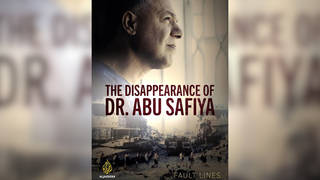
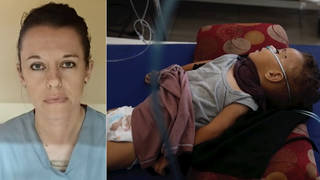
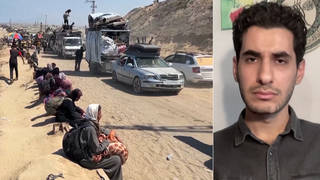





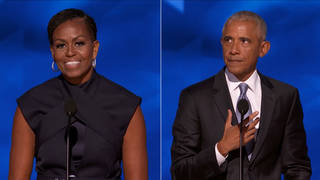
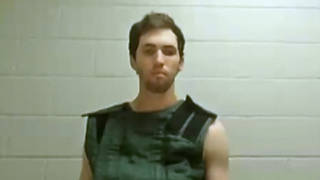
Media Options